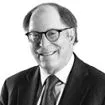On Friday, the United States Court of Appeals for the Second Circuit struck a blow to nonresident lawyers looking to practice in New York State. The Second Circuit ruled that Section 470 of New York State's Judiciary Law ("Section 470"), which requires nonresident lawyers to have a physical office in New York, does not violate the United States Constitution. The Second Circuit's decision comes as a surprise to many who were following the constitutional challenge, including us, when we reported on the case in a previous alert and predicted the Second Circuit would find, as the District Court had, that Section 470 violated the Privileges and Immunities Clause.
As it turns out, the reports of Section 470's imminent demise were grossly exaggerated. Here's what actually happened.
Some Background on Section 470
For a variety of reasons, many lawyers seek to practice in New York without having a physical office here. Some lawyers choose to practice "virtually" - conducting their business primarily over the Internet, rather than through a physical office - while other lawyers are simply located in neighboring states but are duly licensed to practice in New York. Whatever the reason, each has had to wrestle with Section 470, which requires all nonresident lawyers who practice in New York to maintain an "office for the transaction of law business" within the state.
Historically, the primary enforcement mechanism for Section 470 has been through motions to dismiss at the trial court level, based on an attorney's failure to maintain a physical office in New York. Until last year, however, New York State's highest court had not ruled on whether a bona fide physical office was required to comply with Section 470, or if something less, such as a post office box or agent for service of process, would satisfy the requirement.
The Constitutional Challenge to Section 470: Schoenefeld v. State of New York
Ekaterina Schoenefeld is a New Jersey resident who is licensed to practice law in both New York and New Jersey. She maintains an office in New Jersey, but not in New York. In April 2009, Ms. Schoenefeld filed an action in federal court challenging the constitutionality of Section 470. She argued that the physical office requirement violated the Privileges and Immunities Clause, which guarantees that the citizens of each state will be placed "upon the same footing with citizens of other States." Ms. Schoenefeld's position is that Section 470 treats out-of-state lawyers differently than resident lawyers, who are not subject to a law office requirement and, thus, can practice out of their homes. The U.S. District Court for the Northern District of New York agreed with Ms. Schoenefeld, and held Section 470 violated the Privileges and Immunities Clause.
On appeal, the Second Circuit concluded that the constitutionality of Section 470 depended on the definition of an "office for the transaction of law business" within the statute. Observing that New York State's highest court had never ruled on that issue, the Second Circuit certified the question to the New York Court of Appeals. Responding to the certified question, the Court of Appeals ruled that Section 470 contained a physical office requirement, not merely an address for service of process. As indicated above, this ruling was viewed as the harbinger of death for Section 470, since it was generally believed that the Second Circuit would strike down a physical law office requirement.
The Second Circuit's Constitutionality Ruling
More than a year after receiving its answer from the Court of Appeals, the Second Circuit issued a 31-page decision, ruling that Section 470 "does not violate the Privileges and Immunities Clause because it was not enacted for the protectionist purpose of favoring New York residents in their ability to practice law." Rather, the Opinion states, Section 470 was enacted to permit nonresident lawyers to practice in the state, by allowing them to establish a physical presence in New York and, thus, a place where they can receive service of process. It is Ms. Schoenefeld, the Court opines, who seeks to be treated differently from New York lawyers who already have a physical presence in New York.
The Opinion was accompanied by a 25-page dissent from Judge Hall, which begins with a blistering attack on the ruling: "The majority holds that a New York state statute that discriminates, on its face, against nonresident attorneys - burdening them with the expense of maintaining an office in New York while exempting resident attorneys from the same requirement - does not offend the Privileges and Immunities Clause . . . because, in the majority's view, the plaintiff has failed to prove that the statute evinces a 'protectionist' intent." (emphasis added). The Dissent observes that the majority's holding improperly shifts the burden away from the state to provide a sufficient justification for laws that discriminate on their face against nonresidents. The Dissent notes that, although New York state's justifications for requiring a physical law office might have made sense in 1862 when the statute was enacted, they are no longer relevant in an age that offers numerous methods for service on nonresident attorneys, including "mail, overnight delivery, fax and (where permitted) email."
Opponents of Section 470 argue that its strict office requirement is inconsistent with the recent trend (both in New York and elsewhere) in favor of multijurisdictional practice. It is also out-of-step with recent ethics opinions from both the New York City and New York State Bar Associations, which conclude that lawyers are permitted under New York's ethics rules to use virtual law offices. Nonetheless, until the New York legislature or the United States Supreme Court say otherwise, nonresident lawyers wishing to practice in New York will first need to physically set up shop in the state.
This alert provides general coverage of its subject area. We provide it with the understanding that Frankfurt Kurnit Klein & Selz is not engaged herein in rendering legal advice, and shall not be liable for any damages resulting from any error, inaccuracy, or omission. Our attorneys practice law only in jurisdictions in which they are properly authorized to do so. We do not seek to represent clients in other jurisdictions.




